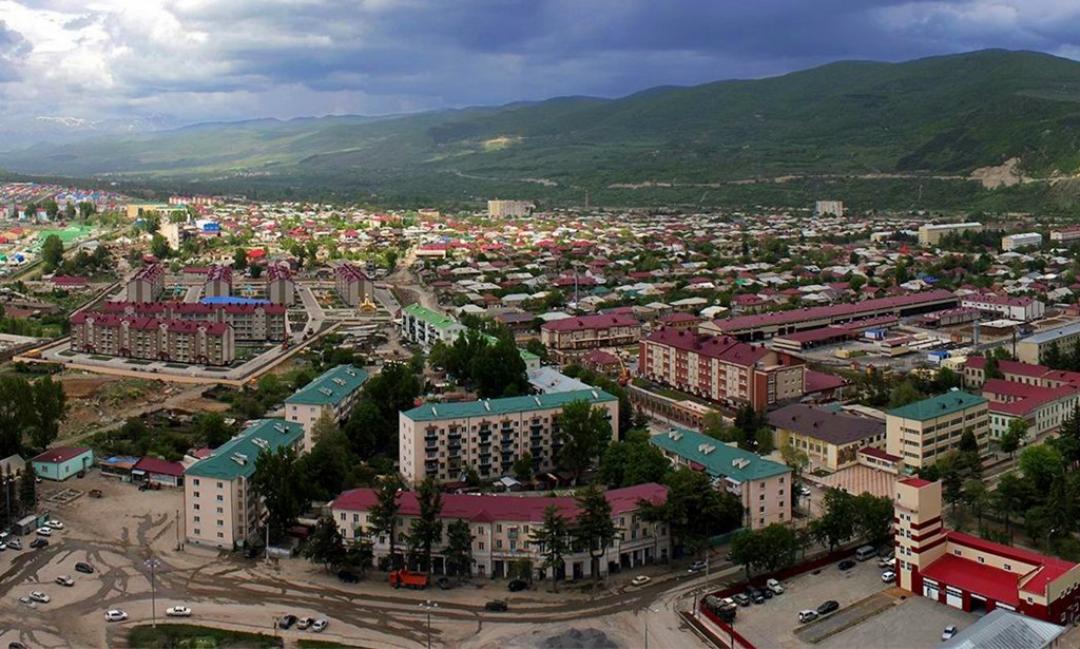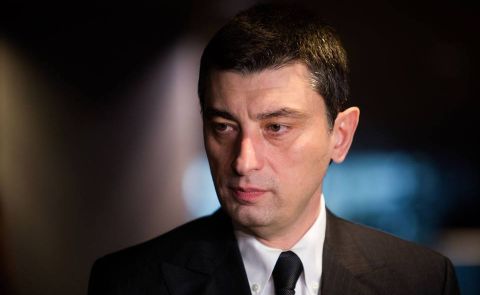
De-facto president of separatist South Ossetia is facing calls for impeachment

Opposition MPs are considering impeachment procedures against de-facto South Ossetian (Tskhinvali region) President Anatoly Bibilov, accusing him of undermining the country's territorial interests. The calls for impeachment came after a tense debate in the South Ossetian Parliament between the president and opposition MPs.
Alan Gagloyev, the chair of the opposition Nykhas Party said that Bibilov’s guards threatened to ‘rip his head off.’
Over the last two years, Bibilov has been under growing criticism from the opposition, including protests and an opposition boycott of parliament over his handling of the coronavirus outbreak and the death of a citizen in police custody.
A disagreement with Georgian officials over a roadblock built up near the settlement of Tsnelisi sparked the present crisis.
During parliamentary session, opposition MPs, including those from Nykhas and the Popular Party, claimed that a report from the border commission established in the aftermath of the Tsnelisi crisis had discovered a "critical gap" between South Ossetia's current de facto borders and those defined in a Soviet-era decree issued in April 1922.
They claim that the current scenario, which includes boundary suggestions put out by Bibilov in August 2019, has given the Georgian government 200 square kilometres of what should be South Ossetia's territory.
The president has expressed his opposition to adhering to the lines established by the 1922 decree, arguing that doing so would necessitate the recognition of several communities now under South Ossetian administration as Georgian territory.
As examples of the prospective losses, Bibilov cited the communities of Gudzhabauri (Gudzabar), Orchosani (Orchosan), and Artsevi (Artseu).
For over two years, the border commission has been hanging over Bibilov's head. The present problem stems from a political confrontation with the Georgian government over a roadblock established by Georgian forces.
Georgia's Interior Ministry established a checkpoint in Tsnelisi (Uista), a South Ossetian-controlled settlement in the southwest of South Ossetia, in the summer of 2019, advancing their position through what had previously been a no man’s land between the two sides.
Separatist South Ossetia responded promptly with its own base in Tsnelisi. However, this did not address Bibilov's internal concerns, as he has subsequently been accused of failing to take "preventive" measures against the checkpoint and proposing border legislation that is "injurious to the territorial integrity of South Ossetia."
The deadlock has made negotiations between Georgian and South Ossetian officials much more difficult.
Representatives from South Ossetia have frequently asked that the outpost be removed, claiming that it is a source of instability and a threat to their security. The Georgian government has declined to do so.
The South Ossetian KGB has also stated that Georgian drones frequently enter their territory on multiple occasions.
In Akhalgori (Leningor), South Ossetia's easternmost region, the impasse over the Tsnelisi checkpoint has deteriorated the humanitarian situation.
After the conflict erupted, de-facto South Ossetian authorities largely limited transportation between Akhalgori, which is primarily populated by ethnic Georgians, and Georgian-controlled areas. Prior to the shutdown, many inhabitants of Akhalgori traveled into Georgian-controlled territory to see family and seek medical care. Bibilov has tried to defend the move on multiple occasions by claiming that the problem of one area of South Ossetia, in this case Tsnelisi, should be the responsibility for all of South Ossetia.
Bibilov asked ethnic Georgians to be equally concerned about their South Ossetian countrymen in Tsnelisi in two meetings with inhabitants of Akhalgori since the 2019 crisis, including last December.
He refused to promise to reopen the checkpoints by saying that the Georgian checkpoint must first be removed.
See Also


Russia Begins 24/7 Radiation Monitoring in Dagestan After Iranian Nuclear Incident

How Do Caucasus States React to Israel-Iran War?

Weekly Brief on Military Situation in the South Caucasus (9–15 June 2025)

Former Georgian PM Gakharia to Face Prosecution

